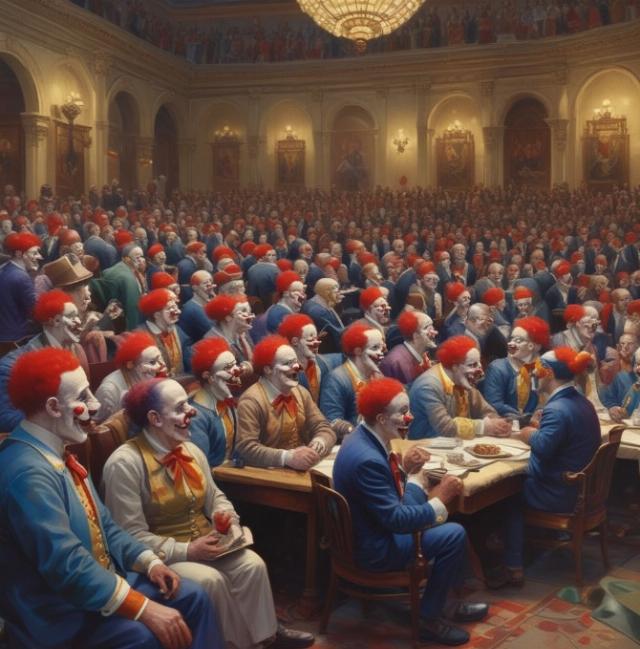


Very soon, Speaker of the House Mike Johnson (R-LA) will bring the Big, Beautiful reconciliation bill to the floor for a full House vote before it heads to the Senate for more tinkering. As of now, several Republican members of the House of Representatives have said they would vote against the bill as it is currently written.
Generally, the House Republicans who oppose the bill fall into two camps: House Freedom Caucus members and Republicans in deep blue states.
The House Freedom Caucus members think the bill does not go far enough in spending cuts. According to Rep. Chip Roy (R-TX), “The fact of the matter is this has massive savings in the first five years, and it has massive deficits of the first five years because we're not addressing the structural reforms that we're talking about right here.”
Roy is right. Per usual, Congress is playing games and including all types of provisions to undermine the long-term prospect of the spending cuts actually taking effect while using accounting gimmicks to make the spending cuts appear deeper than they actually will be.
To be honest, I agree with Roy on this particular point. Although the spending cuts are not as foolproof as I’d like them to be, they are much better than the typical reduction in the future growth of spending that Congress has framed as spending cuts in recent years.
Americans must not be primed into thinking that reducing the rate of future spending growth constitutes a spending cut.
On the other side, there are a few Republican holdouts, notably Rep. Mike Lawler (R-NY), who are threatening to torpedo the Big, Beautiful Bill on much less noble grounds. Their core problem with the reconciliation bill is that it does not subsidize their high-tax districts enough.
Specifically, they want the legislation to include a massive direct payment to their districts by increasing the federal tax subsidy for state and local tax (SALT) deductions.
“A higher SALT cap isn’t a luxury. It’s a matter of fairness,” say Lawler and his New York congressional colleagues.
That is one of the most ludicrous things I’ve heard in quite some time. It is patently unfair to expect Americans in low-tax states like Tennessee to subsidize the outlandish state and local taxes that New Yorkers and others choose to pay. Rather than hold the entire nation hostage, perhaps Lawler and his New York colleagues should address the problem at its core: the state capital in Albany.
The reality is all House Republicans have a binary choice on the Big, Beautiful Bill. If they oppose it, they are paving the way for a massive tax increase, particularly upon the middle and working classes.
As The Heartland Institute found in a policy study first released in 2021 and updated earlier this year, the Tax Cuts and Jobs Act, which is the backbone of the tax rate cut extension in the Big, Beautiful Bill, overwhelmingly benefited hardworking Americans.
In a nutshell, “data from the IRS measuring income tax revenues collected from 2017 to 2022 show the Tax Cuts and Jobs Act (TCJA) reduced the average amount of personal income taxes paid by filers in every income bracket, with the largest benefits going to lower- and middle-income households.”
What’s more, the big, beautiful bill includes a bunch of new provisions that will further slash the taxes of blue-collar workers and wage earners.
In terms of the concerns of the fiscal hawks, who think the bill is too loose on the spending cuts, I remind you that economic growth is the only feasible way to address our $36 trillion debt situation.
The reconciliation bill offers an all-encompassing path to massive economic growth because it not only includes massive tax relief, but also includes provisions to slash onerous regulations, unleash American energy, incentivize reshoring of factories and manufacturing jobs, impose work requirements for able-bodied adults without dependents on Medicaid, while at least putting a dent in current spending.
Yes, the Big, Beautiful Bill is not perfect. But as the old saying goes, perfect is the enemy of good.
Chris Talgo (ctalgo@heartland.org) is editorial director at The Heartland Institute.

Image: AT via Magic Studio
